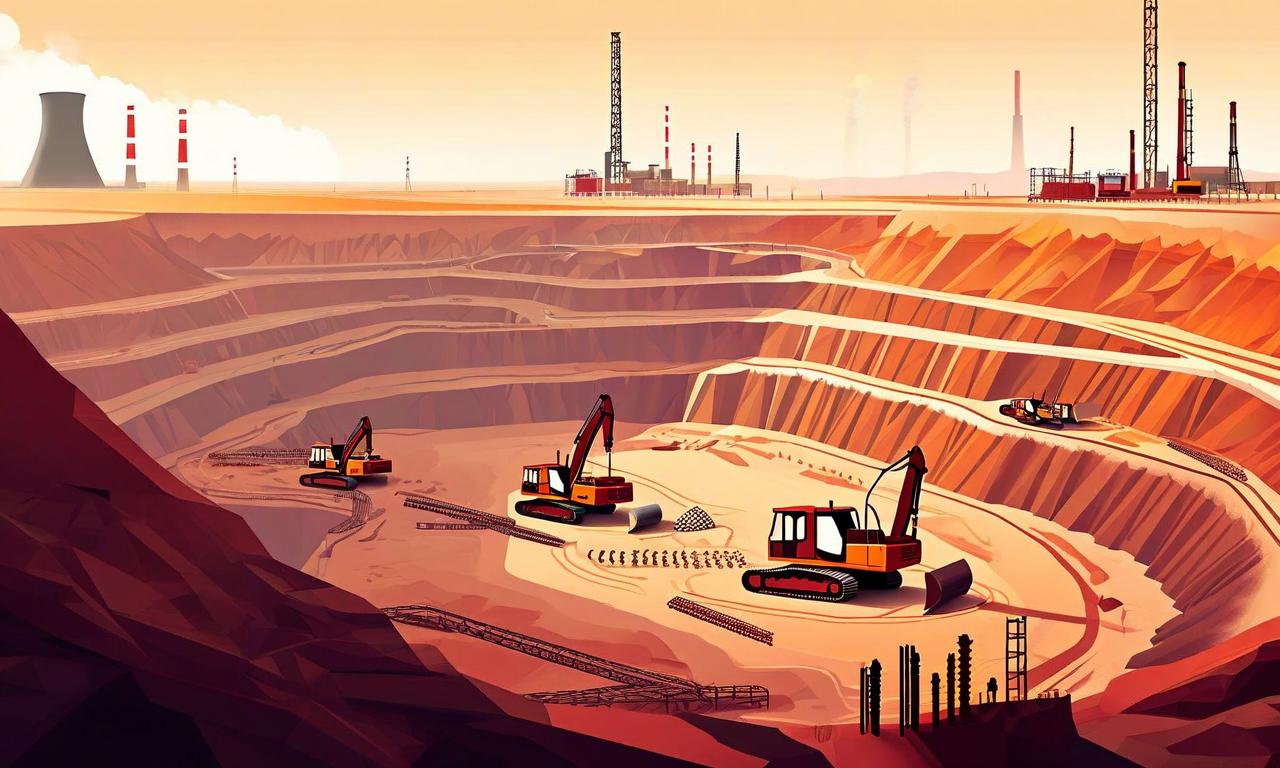India Exempts Critical and Atomic Mineral Mining From Public Consultation, Citing National Security
India's government has exempted critical, strategic, and atomic mineral mining projects from public consultation requirements. This decision, prompted by the Ministry of Defence, aims to accelerate the development of resources crucial for defense technologies and high-tech industries. The policy focuses on minerals like Thorium and Uranium, vital for India's nuclear programs. All such projects will now undergo centralized appraisal, regardless of size, to fast-track implementation. While this move is expected to enhance resource security and boost defense capabilities, it may raise environmental and social concerns.

*this image is generated using AI for illustrative purposes only.
In a significant move aimed at bolstering national security and accelerating strategic resource development, the Indian government has announced a major policy shift in the mining sector. The Ministry of Environment, Forest and Climate Change has decided to exempt critical, strategic, and atomic mineral mining projects from public consultation requirements, citing pressing defense and security needs.
Background and Rationale
The decision comes in response to a proposal from the Ministry of Defence, which highlighted the global scarcity of these minerals and the associated supply risks. These minerals play a crucial role in various defense technologies, including:
- Radar systems
- Sonar equipment
- Laser technology
- Avionics systems
Moreover, these resources are essential for high-tech electronics and telecommunications industries, underscoring their importance beyond the defense sector.
Strategic Importance of Thorium and Uranium
The Defence Ministry particularly emphasized the strategic significance of two key elements:
- Thorium: Extracted from beach sand mineral Monazite, Thorium is vital for India's third stage Atomic Energy Programme.
- Uranium: Essential for the first stage nuclear power programme, with a need for enhanced production.
Policy Changes and Implications
Under the new policy:
- All projects involving critical, strategic, and atomic minerals will undergo comprehensive appraisal only at the central level.
- This centralized approach will be implemented regardless of the project size.
- The exemption from public consultation aims to fast-track these strategically important mining projects.
Potential Impact
This policy shift is expected to have far-reaching implications:
- Accelerated Development: The streamlined process could lead to faster implementation of critical mining projects.
- Enhanced Resource Security: By prioritizing these minerals, India aims to reduce its dependence on foreign sources for strategic resources.
- Boost to Defense Capabilities: Increased access to these minerals could significantly enhance India's defense technology development.
- Environmental Concerns: The exemption from public consultation may raise questions about environmental impact assessment and local community involvement.
While the move is positioned as a step towards strengthening national security and resource independence, it also opens up discussions on balancing strategic needs with environmental and social considerations. As this policy unfolds, its implementation and impact on both the mining sector and defense capabilities will be closely watched by industry experts and environmental activists alike.
























